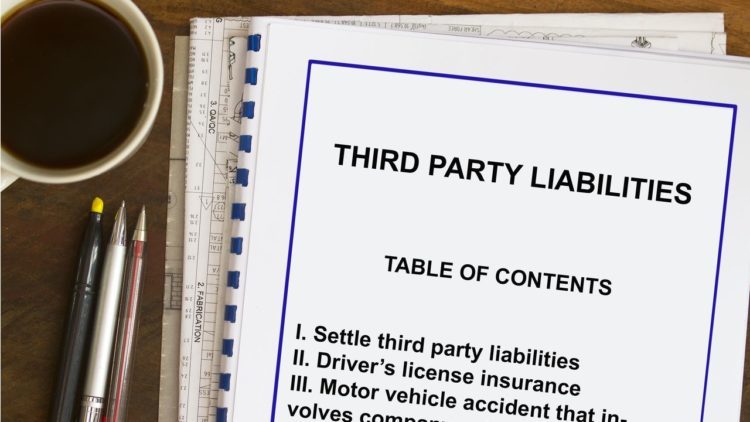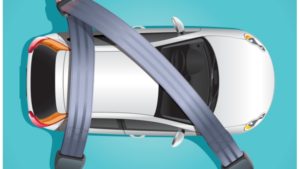
Traffic rules and regulations are laid down in the Motor Vehicles Act, 1988. The Act specifies the rules for driving on Indian roads for all types of vehicles. One such rule specified by the Act is the requirement of a valid insurance policy on the vehicle. The Act states that if a vehicle is to be used on Indian roads, the vehicle should have valid insurance coverage. This coverage would protect the interests of third parties if the vehicle causes them any type of harm.
Based on the directives of the Motor Vehicles Act, 1988, motor insurance policies are offered by general insurance companies. These policies fulfil the legal mandate of the Act and also help the vehicle owner deal with financial losses associated with the vehicle. Motor insurance policies come in two variants – third-party liability and comprehensive. Let’s understand these variants and the coverage that they offer:
Third-party liability insurance
A third-party liability policy covers any third party liability that you face in case of accidents involving your vehicle. These liabilities include the following –
- If any individual is killed due to your vehicle, you face a financial liability
- If any individual is physically hurt, injured or wounded due to your vehicle you face a financial liability
- If you damage anyone’s property with your vehicle, you face a financial liabilityIn case of any of these liabilities, the third party insurance benefits kicks in. The policy pays the claims which you face freeing you from the financial strain. The Motor Vehicles Act, 1988 mandates every vehicle to have a third party liability insurance policy.
Comprehensive insurance
A comprehensive motor insurance policy is called a package policy because it has a wide scope of coverage. The policy covers the mandatory third-party liability which you face if any third party is harmed due to your vehicle. Moreover, the policy also covers damages suffered by your vehicle itself due to the following causes –
- Man-made causes like fire, malicious acts, riots, etc.
- Natural causes like earthquakes, lightning, floods, landslides, etc.
- Theft of the vehicle
- Damages suffered when the vehicle is being transported, etc.The policy, therefore, covers the mandatory third-party liability and also the damages suffered by the vehicle. It pays for the repair costs incurred when the vehicle is damaged and undergoes repairs. In case of theft also the policy pays a lump sum value and compensates the loss.
Difference between comprehensive and third party insurance
Here are the main differences between comprehensive and third party insurance plans –
| Basis of difference | Third-party insurance | Comprehensive insurance |
| Coverage | The policy covers only third party liability | The policy covers both third-party liabilities as well as damages suffered by the vehicle itself |
| Determination of premium | The premiums of third party plans are fixed by the Insurance Regulatory and Development Authority of India (IRDAI). The premiums are, therefore, fixed across all vehicle insurance plans across different companies. | The premiums are determined by the insurance company itself. The premiums, therefore, vary across different insurance companies. |
| Rate of premium | The premium is low and affordable | Premiums of comprehensive insurance plans are higher than third party liability plans. This is because comprehensive plans have a wider scope of coverage than third party liability plans. |
| Claim payable | In the case of third party liability claims, the claims depend on the rulings of motor accidents tribunal. In case of death, there is an unlimited liability. The insurance company pays the amount decided by the tribunal. In case of property damage claims, though, there is a coverage limit. | The claims under comprehensive insurance policies depend on the type of claim. Third-party claims are paid according to the ruling of the tribunal. In case of damages suffered by the vehicle, the actual repair costs are paid. The maximum claim liability taken by the insurance company depends on the Insured Declared Value of the vehicle which is also the value of the insurance policy. In case of theft, the Insured Declared Value is paid. |
| Add-ons | Third-party policies offer only the basic coverage against third-party liability. No add-ons are available under the plan. | You can buy additional coverage options called add-ons under a comprehensive policy by paying an additional premium |
| No claim bonus | If no claim is made in any policy year, the policy does not pay any benefit | If no claim is made in a policy year you earn a no claim bonus. This bonus is awarded as a discount in the renewal premium. Moreover, the no claim bonus also increases after each successive claim-free year. |
Which policy to buy- third party or comprehensive?
Third-party policies have lower premiums and they also fulfil the legal requirement of a valid insurance cover. That is why many vehicle owners prefer a third party policy. However, the policy does not cover the damages suffered by the vehicle itself or the theft of the vehicle. In case your vehicle is damaged you would face very high costs of repairs. These costs might take a toll on your finances and so having a comprehensive policy is better. Moreover, in case of theft of the vehicle, you would incur a substantial financial loss. A comprehensive policy covers this loss and gives you financial assistance in such situations. While it is true that the premiums for comprehensive plans are higher, the coverage benefits far outweigh the premium cost.
A third party policy might prove suitable if your vehicle is very old or if you don’t use it very frequently. Otherwise, a comprehensive policy is recommended to cover all the possible instances of financial loss suffered due to your vehicle. So, understand the difference between comprehensive and third party insurance policies to know the coverage that you can get under different types of motor insurance plans. Also, consider the advantages of having a comprehensive motor insurance cover and choose it over third party insurance plans for financial security.






















